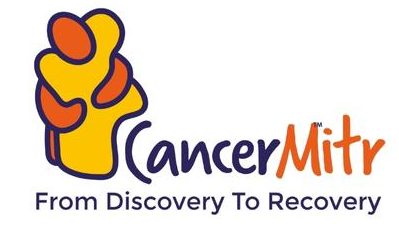
Corporates Can Foster A Responsible Generation Through Cancer Awareness: Dr Ravi Shankar
Home Cancer is a devastating condition that takes a toll on an entire family, leaving a lasting mark on their lives. Characterized by the body’s own cells turning against it through abnormal cell division, this disease disrupts the harmonious functioning of vital tissues and organs. Its unpredictability is truly unsettling, as it strikes even those who lead healthy lifestyles. In the face of such uncertainty, how do we confront a condition notorious for its enigmatic nature? In the realm of battling cancer, the words “early detection saves lives” resonate powerfully. This mantra, vehemently embraced and endorsed by medical experts worldwide, holds the key to transformative outcomes. The question that keeps coming up is how can we ensure early detection of cancer, thus gaining the upper hand in this relentless battle? In pursuit of this knowledge, we turn to the expertise of Dr. Ravi Shankar – a surgical oncologist whose passion for combating cancer shines brightly. Dr. Shankar’s invaluable insights are generously shared with the CancerMitr team, illuminating a path of hope for everyone. Why is early detection important? Which all stages are usually referred to as the early cancer stage? Cancer is a condition characterized by abnormal cell division, which can penetrate various tissues and organs. Depending on the tumour’s size and location, cancer is classified into four stages. Stages 1 and 2 are often referred to as the early stages, offering a glimmer of hope and the possibility of effective intervention. During these initial phases, the tumour is localized. It has not invaded the nearby tissues, lymph nodes, blood vessels, or organs. This is the time when targeted measures can be taken to either destroy the tumour outright or surgically remove the affected portion, mitigating the risk of further spreading. As the journey progresses into later stages, the tumour assumes a more significant presence, potentially affecting nearby structures or spreading distant sites (process known as metastasis). Navigating this phase demands an expensive, time-consuming, and comprehensive approach as treatment frequency increases. At the same time, the patient faces more complexities and damages caused by the tumour. Amidst the challenges posed by cancer, understanding the stages empowers individuals and families to make informed decisions. By fostering awareness and knowledge, people can support one another in the face of both uncertainty and adversity. What is the current prevalence of cancer in India? Is the number low or high when compared to earlier? In my expertise, oral cancer is the most prevalent, along with lung, breast and colorectal cancers. However, it’s important to note that these numbers can vary depending on the region. Currently, India is grappling with a substantial burden of Head and Neck cancer. Undoubtedly, we are witnessing a rise in cancer cases compared to earlier times, but let’s explore the two crucial aspects contributing to this trend: incidence and diagnosis. When it comes to the incidence, several factors play a role, including lifestyle habits like smoking, tobacco chewing, and more, along with environmental factors like air pollution. Acknowledging and addressing these contributors is paramount in our efforts to combat the disease. On a positive note, the increase in the number of cancer diagnoses indicates an encouraging shift. More people are becoming aware of the importance of early detection and willingly seeking tests for the disease. This proactive approach significantly impacts prognosis, as early identification paves the way for better outcomes. We should embrace the power of awareness and knowledge. By understanding the causes, fostering healthy habits, and prioritizing regular screenings, we can collectively shape a brighter future in the fight against cancer. In your experience, at what stage do patients usually come to you? Do you come across more patients who experience initial symptoms but don’t talk about it until the cancer worsens? Unfortunately, 60-70% of the patients who come to me are in their advanced stage of cancer. Many of these individuals have experienced symptoms such as persistent ulcers, sore throats, or unusual pain, which often go unnoticed or are mistakenly treated for something else, due to a lack of awareness. Regrettably, even misdiagnoses can occur, prolonging the time it takes to initiate proper investigations, ultimately leading to later-stage diagnoses. The importance of awareness cannot be overstated, as it empowers patients to recognize potential warning signs and seek timely medical attention. In that way, the patient will know where to go for timely intervention. On a more positive note, there are patients who demonstrate admirable awareness about their health. They recognize that certain symptoms might indicate something abnormal and warrant immediate investigation. Their proactive approach to seeking appropriate care can lead to earlier detection and better treatment outcomes. We are trying to instil the mantra “early detection saves lives” into people’s minds by highlighting it’s importance. So, based on your expertise, how do you compare the prognosis of stage I and stage 4 cancer patients? When it comes to cancer stages, understanding the risk of recurrence is vital. The focus of treatment revolves around preventing recurrence. By using a combination of therapies, post-surgery chemotherapy or radiation, doctors aim to target any remaining cancerous cells in the bloodstream. When it comes to stage I patients – 80 out of 100 individuals do not experience a relapse. It is because early-stage tumours are localized and haven’t spread. However, the scenario changes for stage III or IV patients. Here, 80-90% of individuals may experience a relapse, as the initial treatment didn’t completely eliminate all cancerous cells. If even a small number of cancerous cells, 100 out of 1 lakh, for example, survive treatment, they can trigger a resurgence of the disease. One thing almost all of my patients ask me is if I can guarantee that the cancer won’t come back after treatment. My honest answer is no; such guarantees are beyond my reach. Each patient’s journey is unique, and predicting individual outcomes is not possible. What I can assure them, though, is my unwavering commitment to providing the finest treatment and tailored protocols customized to their abilities and convenience. The

